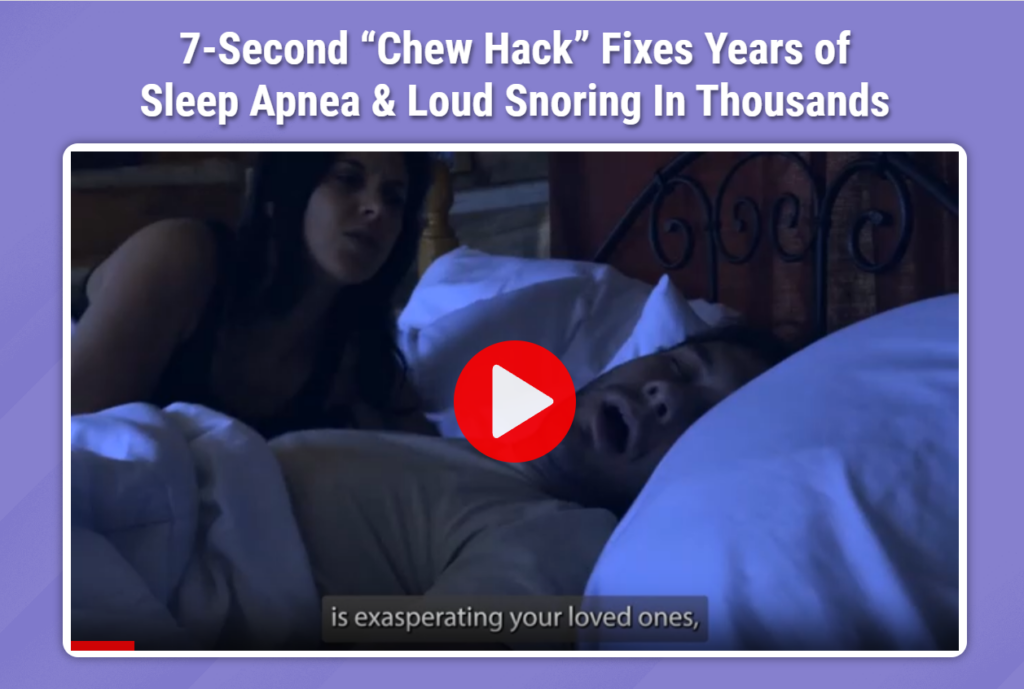
A new study from Norway has revealed shocking data about how using your phone before bed can affect sleep quality. According to the research, just one hour of screen time at bedtime can increase the risk of insomnia by a staggering 59%. In addition, that single hour spent scrolling through your phone, watching videos, or even reading on a digital device can reduce total sleep time by 24 minutes per night. And don’t think social media is the only culprit. The study found that the negative impact on sleep is similar across social media, movies, series, gaming, and even reading on screens. The issue isn’t just the content—but the constant exposure to bright light before bed, which can completely disrupt the body’s natural signals to relax.
Poor sleep is already a silent epidemic in the United States. According to the Casper-Gallup State of Sleep in America report, around 84 million American adults, or 33% of the population, describe the quality of their sleep as “fair” or “poor.” Among young adults, that number jumps to 38%. And even though we know the countless benefits of a good night’s rest—like stronger immunity, mental clarity, emotional stability, and disease prevention—only 35% of Americans get the recommended eight hours of sleep per night. That means the majority of the population is constantly tired, irritable, and less productive—all because of a seemingly harmless habit: looking at their phone in bed.
But are we wrong to blame social media? Science says… maybe. The study, published on March 31 in Frontiers in Psychiatry, involved 45,202 young adults and analyzed how different screen activities affect sleep. And contrary to popular belief, social media isn’t any more disruptive to sleep than watching TV, movies, or even listening to podcasts. That surprising conclusion came directly from the study’s senior author, Dr. Børge Sivertsen, a researcher at the Norwegian Institute of Public Health, who stated: “Our findings challenge the notion that social media use is particularly disruptive to sleep.” In other words, the real enemy might not be the content itself—but rather, the habit of bringing screens into the bedroom.
The study tracked a wide range of nighttime screen behaviors—from binge-watching shows and reading digital books to gaming, music, and podcasts. All of these activities showed similar effects on sleep—which supports the theory that bright screen light and mental stimulation are the main sleep disruptors. And this is just the beginning. Dr. Sivertsen has already announced the next phase of the study, which will investigate how using phones for work-related tasks before bed impacts sleep. With remote work becoming the norm and professional life invading our bedrooms, understanding this new behavior will be key to tackling the growing sleep crisis. So if you’re in the habit of ending your day by checking emails or scrolling through your feed in the dark… it might be time to rethink your nighttime routine.
Does blue light impact sleep?
The answer isn’t as black-and-white as it seems. Earlier studies have consistently shown that light emitted by electronic screens—especially in the blue wavelength of the visible spectrum—can interfere with sleep patterns and disrupt the body’s internal clock, known as the circadian rhythm. This disruption happens because blue light appears to suppress melatonin, the hormone responsible for helping us fall and stay asleep. That’s one reason why many smartphones and tablets now come with night mode or blue light filters, designed to minimize this exposure in the evening hours.
During daylight hours, blue light actually has its benefits. It helps us stay alert, boosts our mood, and even improves reaction times. It’s nature’s way of keeping us awake and energized. But when we’re exposed to it too late in the day, it can send confusing signals to the brain, making it harder to wind down. Still, not all scientists agree that blue light is the main villain when it comes to poor sleep. A more recent experiment observed the effects of both blue and yellow light exposure for an hour before bed in a small group of participants, and surprisingly, the results showed no significant difference between the two. This suggests that any bright light, regardless of color, might be enough to disrupt sleep.
Dr. Leah Kaylor, a clinical psychologist and upcoming author on sleep science, still views blue light with caution. Although she wasn’t part of the new study, she emphasized how our brains are wired the same way they were thousands of years ago, back when sunrise and sunset dictated our daily rhythms. Kaylor pointed out that artificial lighting, especially close to bedtime, can confuse these primitive systems, keeping the brain in “day mode” and delaying the natural transition into sleep. That’s why even warm light from a phone or lamp might have unexpected consequences if used too close to bedtime.
And here’s where it gets even more interesting: not everyone’s brain reacts to light the same way. According to Dr. Jonathan Cedernaes, a sleep researcher at Uppsala University in Sweden, the sensitivity to light’s melatonin-suppressing effects can vary drastically from person to person—by as much as 50 times. While one individual might be barely affected by a screen’s glow, another could experience a dramatic drop in melatonin levels. Cedernaes, who was not involved in the recent study, believes this biological variability is crucial in understanding why some people fall asleep effortlessly after screen time, while others toss and turn for hours.
Health effects of not getting enough sleep
The health effects of not getting enough sleep go far beyond just feeling tired. Sleep isn’t a luxury—it’s a biological necessity, as critical to survival as food and water. When you cut corners on sleep, every major system in your body pays the price. The central nervous system, which handles everything from memory to emotional regulation, becomes sluggish, increasing the chances of mental fog, mood swings, and even accidents. Your immune system, responsible for defending against illness, weakens significantly, making you more vulnerable to viruses and infections. And that’s just the beginning.
The damage continues throughout the body. The respiratory system suffers, especially in people with existing conditions like sleep apnea, creating a vicious cycle of disrupted breathing and poor rest. The digestive system also takes a hit—lack of sleep messes with hormones that regulate hunger, increasing cravings for sugary, fatty foods and throwing your metabolism out of balance. This, in turn, boosts the risk of weight gain and type 2 diabetes. Meanwhile, your cardiovascular system, which keeps your heart and blood vessels functioning smoothly, becomes stressed, raising the likelihood of high blood pressure, heart attacks, and strokes.
Then there’s the endocrine system, the body’s hormone control center. Sleep is when your body fine-tunes the release of vital hormones—including growth hormone and those involved in stress regulation and blood sugar balance. Without proper rest, this system falls into disarray, contributing to long-term issues like chronic fatigue, hormonal imbalances, and mood disorders such as depression. Over time, chronic sleep deprivation becomes a major risk factor for several life-threatening conditions, including hypertension, diabetes, obesity, heart disease, and even stroke. The message is clear: sacrificing sleep isn’t just a bad habit—it’s a direct threat to your health.
How social media use at bedtime affects sleep
How does social media use at bedtime actually affect your sleep? The answer might be more complicated than we think. According to Dr. Børge Sivertsen, the lead researcher of a major Norwegian study, students who only used social media before bed actually had the lowest rates of insomnia and the longest average sleep duration when compared to those who engaged in a mix of screen-based activities like gaming, video streaming, or digital reading. This unexpected result led researchers to propose an interesting hypothesis: the social connection provided by social media may serve a protective function, helping some users feel more relaxed or emotionally settled before sleep—especially when compared to the more stimulating or isolating nature of other digital behaviors.
But before we declare bedtime scrolling as harmless, other research paints a different picture—particularly for younger users. A study from 2019 found that any type of screen use at night—whether it’s social media, TV, games, or e-books—was strongly associated with sleep problems among adolescents and children. Why? Teenagers are known to be more emotionally reactive and socially sensitive, which means that social media conversations or content can stimulate them far more than it does adults. Dr. Sivertsen points out that adolescents often experience a natural delay in their sleep cycle, and late-night social screen use might make this worse, shifting their bedtime even later and cutting into the total hours of rest they need to function.
There’s also evidence suggesting that just having access to devices in the bedroom—whether used or not—can be enough to reduce sleep quality. Dr. Jonathan Cedernaes, a sleep expert from Uppsala University in Sweden, referred to a meta-study involving 125,000 children, which found that even unused devices in a child’s bedroom were linked to shorter and poorer-quality sleep. The mere presence of phones, tablets, or game consoles may contribute to anxiety or anticipation, making it harder to mentally disconnect at night. And for college-age adults, the issue remains significant. One survey revealed that a staggering 93% of Gen Z respondents admitted to staying up past their bedtime just to use social media, often sacrificing rest for a few more swipes or likes.
Not everyone agrees with the Norwegian study’s surprising conclusion. Dr. Leah Kaylor, a clinical psychologist and sleep specialist, expressed skepticism. She was particularly concerned that gaming—a known disruptor of sleep due to its high stimulation and adrenaline spikes—wasn’t more closely examined. “The idea that social media is somehow protective for sleep is a huge leap,” she explained. “While the results are interesting, they’re not definitive. We need a lot more targeted research before making any real claims.” And she’s right—understanding social media’s impact on sleep isn’t a one-size-fits-all scenario. Emotional state, content consumed, and individual behavior all play a role.
Dr. Cedernaes echoed this complexity, emphasizing that how social media affects sleep may depend heavily on context. Is the content relaxing or stressful? Is the person already struggling with insomnia and using their phone to cope? Are they doomscrolling after a high-stress day? All these nuances make it difficult to isolate social media as a simple cause or cure for sleep issues. Ultimately, the relationship between bedtime screen use and sleep is deeply personal—shaped by habits, emotions, and how we engage with our digital world.
Tips to practice good sleep hygiene
Want better sleep? It might start with how you wind down at night. Practicing good sleep hygiene—habits that promote consistent, quality sleep—can make a massive difference in how well you rest and how energized you feel the next day. One of the most important tips? Limit your screen time in bed and in the hour before bedtime. If you do use your phone or another device during that time, stick to passive, low-stimulation activities like listening to relaxing music or audiobooks. The goal is to ease your brain into a calm state, not rev it up with intense content, drama, or scrolling through emotionally charged posts.
Another key tip is to use your device’s built-in blue-light filter to reduce the disruptive effects of screen light on your body’s melatonin production. On iPhones, this feature is called Night Shift; on Android, you’ll find it labeled as Night Light, Blue Light Filter, or Eye Comfort Shield. While the scientific debate over blue light continues, these filters can reduce eye strain and minimize the intensity of screen light in the evening. Even better? Turn off nonessential screens at least 30 to 60 minutes before sleep to allow your body’s natural sleep signals to take over without digital interference.
You’ll also want to silence notifications and remove distractions. Use your phone’s Do Not Disturb mode to block texts, calls, and alerts during your sleep hours. For the best results, consider charging your phone in another room entirely. That way, you eliminate the risk of a buzz, beep, or screen glow waking you up—or tempting you to check your phone at 2 a.m. Stray sounds and lights from smart devices can jolt you out of light sleep without you even realizing it. Small changes like this can have a huge impact on the depth and continuity of your sleep.
Finally, one of the most powerful tools for better rest is consistency. Try to go to bed and wake up at the same time every day—even on weekends. This routine helps train your body’s internal clock, or circadian rhythm, to anticipate sleep and wake cycles naturally. Over time, falling asleep becomes easier, and waking up feels less like a fight. And while experts continue to research the deeper connections between screen use and sleep health, the bottom line remains clear: practicing strong sleep hygiene is one of the smartest investments you can make for your overall well-being.

If you’ve been struggling with sleep apnea or loud snoring, this might be the most important 7 seconds of your life. There’s a presentation making waves right now—and no, it’s not just another overhyped solution. This 7-second “chew hack” has already helped thousands of people around the world finally get the deep, quiet sleep they’ve been craving for years. No machines. No mouthguards. No invasive treatments. Just a simple, natural fix that targets the real root cause of sleep apnea—and the best part? It can be done right from the comfort of your home.
People who’ve tried everything—from CPAPs to surgery—are calling this “the one thing that actually worked.” But here’s the catch: this presentation isn’t staying up forever. If you’re reading this now, you’re already late to the party. The buzz is growing fast, and those who watched it early are already seeing life-changing results—more energy, better focus, zero snoring, and finally waking up feeling truly rested. Don’t be the last person in your friend group still complaining about sleepless nights.
Curious? You should be. Because what this short video reveals isn’t just a trick—it’s a game-changer backed by real success stories. So if you’ve ever felt frustrated, exhausted, or even embarrassed by your sleep problems, don’t wait.
Click to watch the presentation before it’s pulled down. This might be the exact thing your body’s been begging for.

Dr. Sarah Miller is widely recognized as an influential leader in the healthcare field, with a career marked by excellence, innovation, and dedication to improving human well-being. Combining exceptional academic knowledge, clinical experience, and a deep commitment to research, she has become a reference in her specialty.






